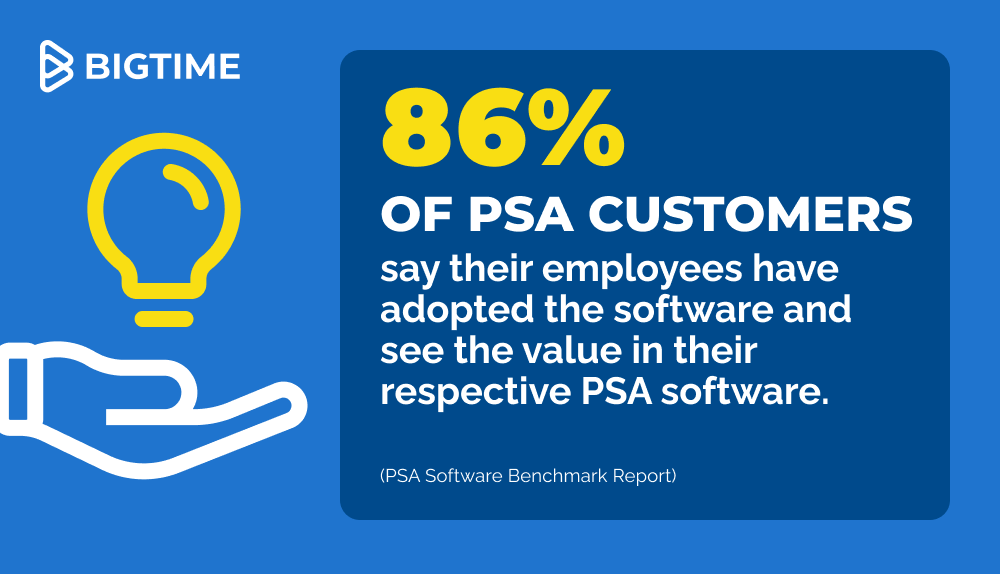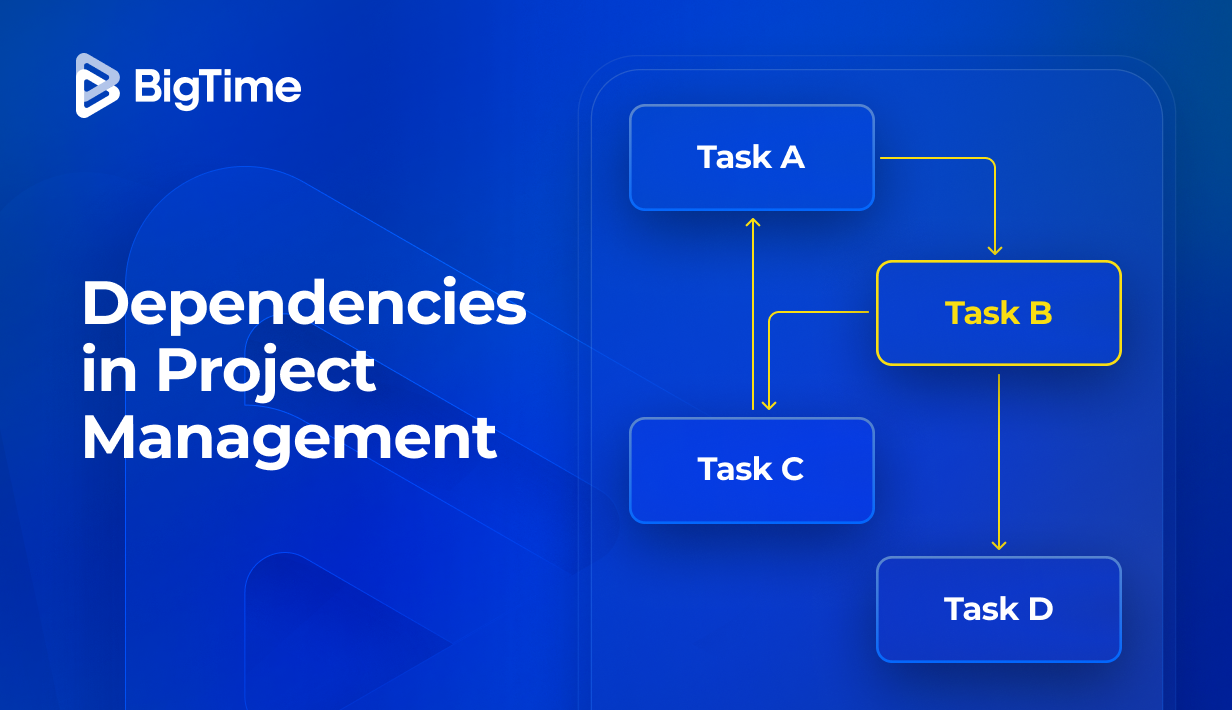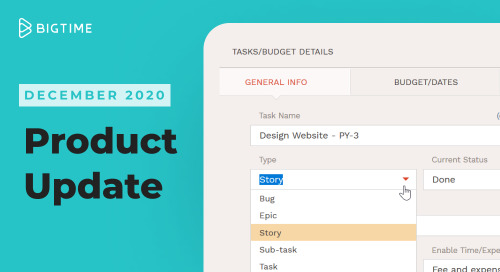
Last updated August 15th, 2023
Software for consultants can be a game-changer, empowering organizations to work more efficiently, manage projects seamlessly, and exceed client expectations. By adopting the right software, consultants can simplify their processes, automate routine tasks, and gain valuable insights to make data-driven decisions. Software for consultants offer a wide range of features, including time tracking, resource allocation, and financial management, all geared towards maximizing productivity and driving success in the consulting industry.
Keep on reading to learn about a few different types of software for consultants and how they can help solve common problems.
Accounting Software for Consultants
Accounting software helps streamline and automate various accounting tasks, enabling consultants to focus on their core competencies and client services.
Benefits of Accounting Software for Consultants
Accounting software enables effective financial management by providing tools to track and record financial transactions, such as income, expenses, invoices, and payments. This capability ensures accurate and up-to-date financial records, facilitating a comprehensive analysis of the firm’s financial health and informed decision-making. Consulting firms need accounting software to maintain a clear overview of their financial position, including revenue, expenses, and cash flow.
Accounting software can also generate various financial reports such as income statements, balance sheets, and cash flow statements, which are essential for monitoring the financial performance and stability of the consulting firm. These reports provide insights into revenue sources, cost breakdowns, profitability, and financial trends over time. By having access to accurate financial data and analysis, consulting firms can make informed decisions regarding resource allocation, pricing strategies, and financial planning.

PSA Software for Consultants
By utilizing PSA (Professional Services Automation) software, consulting firms can effectively allocate resources, simplify project coordination, and ensure accurate financial tracking and billing. This ultimately leads to improved project delivery, increased efficiency, and better financial control, contributing to the overall success and profitability of the consulting firm.
Benefits of PSA Software for Consultants
PSA software integrates various tools and functions such as time tracking, expense tracking, project management, resource management, and invoice processing into a single platform. This comprehensive solution eliminates the need for separate systems and consolidates all essential functions within one cohesive framework.

With PSA software, consultants can efficiently allocate resources, ensuring the right skills are assigned to projects while balancing workloads. It enables effective project planning, task management, and collaboration, facilitating seamless coordination among team members. PSA software also offers comprehensive project financial management capabilities, enabling accurate tracking of project costs, timely client billing, and real-time insights into project profitability.
There are so many other benefits to PSA software that help solve common problems consultants face. In the next section, we’ll get into those benefits and how PSA can make your day-to-day operations run smoothly.
Have you heard of Enterprise Resource Planning (ERP) software? Feeling confused about whether you need ERP or PSA software? Don’t worry, we wrote a blog about just that: PSA vs ERP Software: Feature Breakdown
Time Tracking and Billing Software for Consultants
PSA software like BigTime places time and billing functionality at its core, catering to firms not yet ready for resource or project management features. BigTime’s versatility serves as both a comprehensive PSA solution with project and resource management features as well as a dedicated option for individuals only needing specialized time and billing software.
Benefits of Time Tracking and Billing Software for Consultants
Time-tracking and billing software is crucial for consulting firms for several reasons. Consultants often work on multiple projects at the same time, and accurately tracking the time spent on each project is essential for effective project management and resource allocation. Time tracking tools allow consultants to log their work hours and activities, providing a clear overview of the time spent on different projects and tasks. This information helps in measuring productivity, evaluating project profitability, and ensuring accurate client billing based on the actual time invested.
Billing software integrated with time-tracking capabilities speeds up the invoicing process for consulting firms. It automates the creation of invoices based on the recorded billable hours, making the billing process faster, more accurate, and less prone to human errors. The software can generate detailed invoices that provide clients with a transparent breakdown of the services rendered and the associated costs. This not only enhances professionalism but also helps build trust and credibility with clients.
Having expense tracking integrated with time and billing tracking further enhances financial management for consulting firms. Business consultants frequently incur expenses related to travel, meals, accommodations, and other project-related costs. By integrating expense tracking, consultants can easily record and categorize expenses, associate them with specific projects, and include them in client invoices. This streamlines the reimbursement process, improves financial visibility, and ensures that all project-related costs are accurately captured.

CRM, Project Management, and PSA Software: Building Your Tech Stack
PSA & CRM Software
Customer Relationship Management (CRM) software plays a pivotal role in managing interactions with clients and leads, enabling businesses to nurture relationships and enhance customer satisfaction. However, the extensive functionalities of CRM software can sometimes lead to feeling overwhelmed.
This is where PSA software steps in to help. PSA software streamlines operations and acts as a guiding compass within the broader CRM landscape, helping organizations prioritize tasks, allocate resources efficiently, and ensure that the right projects are given the spotlight they deserve. By seamlessly integrating these two types of software, businesses can strike a harmonious balance between relationship-building and project execution, driving improved outcomes and fostering long-term success.
Read our blog, PSA & CRM: A Software Dream Team? for more information on building the ideal tech stack for your organization that includes CRM and PSA software.
PSA & Project Management Software
Project management and PSA software serve distinct yet complementary roles in organizational efficiency. While project management software focuses primarily on planning, scheduling, and tracking tasks within projects, PSA software extends its capabilities to encompass the entire lifecycle of a project, from resource allocation to invoicing and actually getting paid.
PSA software also offers features like capacity planning, time tracking, expense management, and reporting, tailored specifically to the needs of service-based businesses. This comprehensive suite of tools empowers professional services organizations to streamline their operations, effectively manage client relationships, optimize resource utilization, and ensure accurate billing and invoicing.
Read our blog, PSA vs Project Management Software to learn more about what software would be the best fit for your organization.
Consulting Software to Resolve 4 Common Paint Points
Every business has its own set of challenges. If you work or own a professional services organization, you most likely spend the bulk of your day solving problems for other businesses offering expert strategy, advice, or skill set. But, while you’re busy helping clients succeed it’s easy to lose sight of the operational side of your firm.
So who helps you? This is where PSA software comes to the rescue!
We’ve heard from many of our clients over the years, and when it comes to a growing firm the pains always seem to be the same. If you are faced with the four challenges outlined below — don’t worry, you’re not alone, and we even have some tips to share with you on how to overcome these hurdles when you take the backseat and let technology take the wheel.
1. What does the future look like?
Predicting what the future holds for your business’s financials can be one of the most stressful pieces of operating a small business. The solution to this is having analytics that can show your current status, averages over time, and the ability to then forecast for your next quarter or year.
PSA software combines the data entered for time, expenses, bill rates, and operational costs to give you accurate reporting of where your business stands in real time. Confidence in metrics makes it easier to take steps toward the future and have stronger management practices.
2. Why does my team always feel spread thin?
While your company grows there are often periods where you take on more engagements that seem exciting and manageable, but then become a scramble to coordinate the right people on the right projects at the right time.
Using a resource allocation tool that is synced with your project management is vital. Many firms try to band-aid this problem with hours a month spent on staff capacity meetings and Excel documents that look more like crazy master plans than useful tools. When project planning and staff time are tracked within the same software, that’s when the magic happens. Project managers or firm leaders can easily find the right staff available for the project and how much time they have to dedicate to it.
Once you’ve shifted to more automated project management that stores your business’s efficiency data, utilization rates can then be easily tracked. At a staff and company-level you can see how efficiently your company is being managed and ways to avoid being spread thin or accumulating bench time.
3. How can I have more cohesive information?
As we hinted above, cohesive insights are key to success and often a puzzle for small organizations that rely on manual systems for data recording. The traditional business model has groups operating in silos. Accounting owns their numbers, consultants own their time and expenses, and leadership manages bill rates and performance.
However, PSA software that can integrate with accounting tools can be the central hub of all your business metrics. This makes keeping a pulse on performance and profitability less of a mystery and more of a developed strategy. To protect the traditional silos, user rights can also be put in place so different groups only have access to their specific data, while the leadership team can still see the big picture in a variety of reports and dashboards.
4. Where do we scale from here?
At the end of the day, everyone is looking to grow their business. Reaching your existing numbers through strong management is important, but it’s where to go from here that most small firms are looking for the answer to.
Here’s what we can tell you. Investing in a tool like PSA software can’t guarantee you new clients or engagements, but it will be the backbone of your organization so your internal operations are strong enough to stand up to new opportunities. When time and expense tracking, billing, project management, resource management, and invoicing all align, your firm will be able to work at its optimal efficiency, and the areas for growth potential will come to light.

Frequently Asked Questions About Software for Consultants
What are consulting services software?
Consulting services software refers to specialized software designed to support the needs of consulting firms. These software solutions typically offer features such as project management, time tracking, resource allocation, client relationship management, and reporting capabilities, all tailored to enhance the efficiency and effectiveness of consulting services.
What tools do consultants use?
Consultants commonly use a variety of tools such as PSA software, project management tools, data analysis tools, and communication platforms to effectively manage client relationships, streamline project workflows, analyze data, and collaborate with team members.
How do I track my consulting hours?
You can easily track your consulting hours by using BigTime Software, which provides intuitive time-tracking features and comprehensive reporting capabilities to monitor and record the time spent on different projects or client engagements.
Do consultants do timesheets?
Yes, consultants commonly use timesheets to accurately track and record their billable hours, project activities, and client work, which aids in project management, client invoicing, and overall time management.
Why are timesheets important in consulting?
Timesheets are important in consulting as they allow consultants to accurately track their billable hours, monitor project progress, analyze resource allocation, and provide detailed documentation for client invoicing and project reporting, ensuring transparency and accountability in the consulting process.




